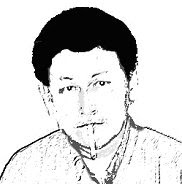
Southeast Asia Research Centre (SEARC), CityU and
Friedrich-Ebert-Stiftung (FES), Germany
Date: 26 and 27 January 2012
Time: 9:00 am – 5:00pm
Venue: Multi-media Conference Room, City University of Hong Kong
This conference will focus on the surprising socio-political and economic changes have recently taken place in Myanmar in the wake of the 2010 elections and which have attracted world-wide attention. It will examine the prospect for further political liberalization in the context of the reforms that have already taken place.
(The Southeast Asia Research Centre organized a workshop on Problems with the National Reconciliation Process in Myanmar in 2009. The 2009 workshop examined Myanmar politics under the military rule. This 2012 conference can be considered a sequel to this earlier workshop.)
Speakers and Discussants
1. Kyaw Yin Hlaing, Associate Director of SEARC and Assistant Professor of AIS, CityU
2. Robert Taylor, Visiting Professional Fellow, Institute of Southeast Asian Studies Singapore
3. Ko Ko Hlaing, Presidential Adviser, Government of Myanmar
4. Thu Wai, Chairman, Democrat Party, Myanmar
5. Wa Wa Tun, President, Myanmar Women Entrepreneur Association, Yangon, Myanmar
6. Myint Su, Freelance Consultant and Community Development Worker, Yangon, Myanmar
7. Zaw Zaw Han, Civil Society Activist and Founder and CEO of the Forever Group, Yangon, Myanmar
8. Hla Maung Shwe, Vice-President, Myanmar Chamber of Commerce and Industry, Yangon, Myanmar
9. Soe Thein, Chief editor, Namath Khitai journal, Yangon, Myanmar
10. Aung Naing Oo, Bahu Institute, Chiangmai, Thailand
11. Thihan Myo-Nyun, Attorney and Legal Scholar, School of Law, Case Western Reserve University, Ohio, USA
12. Winston Set Aung, Consultant and Presidential Adviser, Government of Myanmar
13. Tin Htut Oo, Consultant, Yangon, Myanmar
14. Nyunt Maung Shein, Retired Director-General, Ministry of Foreign Affairs, Government of Myanmar
15. Kyee Myint, Retired Director General, Ministry of Foreign Affairs, Government of Myanmar
16. Mary Callahan, University of Washington, USA
17. Andreas List, Ambassador, European Union
18. Li Chanyang, Director, Southeast Asia Centre, Yunnan University, Kunming, China
19. U Ye Htut, Ministry of Information
20. U Chit Khaing, President, Myanmar Rice Merchants Association
21. Aung Naing Oo, Bahu Institute, Chiangmai, Thailand
22. Saw Yong Paing Shan, Nationalities Democracy Party, Yangon, Myanmar
23. Chit Than, Freelance Consultant, Myanmar
24. Andy Hall, Consultant to the Human Rights and Development Foundation
25. Nyo Ohn Myint, National League for Democracy, Liberated Area
26. Bo Bo Kyaw Nyein, Political Commentator, Myanmar
27. Lian Sakhong, Chin Political Activist
Conference Overview
On March 30, 2011, Myanmar’s long ruling military government, the State Peace and Development Council (SPDC), handed over power to a new civilian government that came into being in the wake of the SPDC-sponsored elections held in November 2010. Because all administrative and legislative bodies both at the central and local levels were controlled by members of the military-backed Union Solidarity and Development Party (USDP), many political activists and Myanmar watchers did not expect much change under the new government. However, on August 19, 2011, to the surprise of many, President Thein Sein met pro-democracy leader Aung San Suu Kyi in his official residence. Two days earlier, the president invited exile activists to return to the country. When Aung San Suu Kyi attended a government-sponsored conference on macro-economic reforms, she was welcomed as a “very very important person” (VVIP). Several senior government officials were very friendly towards her and many well-known cronies of senior government officials who in the past stayed away from members of the opposition lined up for a photo opportunity with the lady.
Aung San Suu Kyi publicly stated that she was very encouraged by the meeting and that she had trust in the president’s determination to bring about political change to the country, including on the issue of democracy. For the first time in its history, the main opposition party, the National League for Democracy (NLD) issued a statement with positive comments about the government a few days after their leader met with President Thein Sein. While major EU countries welcomed the meeting, the United Nations’ human rights rapporteur Mr Quintana noted in a statement issued at the end of his recent visit to Myanmar that there were “real opportunities for positive and meaningful developments to improve the human rights situation and bring about a genuine transition to democracy”. On the other hand, many exile activists still have reservations about the sincerity of the president. Some have gone so far as to claim that what the president has done has been little more than a publicity stunt and that there was no difference between the new civilian government and the predecessor military regime.
When President Thein Sein suspended the controversial Myitsone dam project (jointly developed with Chinese construction companies) in response to the rejection of the project by civil society groups, the US and EU governments praised the decision. Even some exile activists began to opine that the new Myanmar government should be given a chance to prove itself different from its predecessor.
Myanmar has long defied some major social science theories and the expectations of both social scientists and journalists. Although some political transition theories speculated that military governments would not last very long, the military rule in Myanmar has lasted several decades. At the same time, although several Myanmar watchers had argued that the political liberalization undertaken by the military council that ruled the country between 1988 and 2011 would be meaningless, recent changes have indicated that real political change might be in the making. Therefore, it is a high time to examine how the emergence of the new government has affected Myanmar politics, economy, civil society space and foreign relations and how the recent political changes, especially the relations between the government and the opposition should be understood. This conference at the South East Asia Research Centre of the City University of Hong Kong will bring together 26 top scholars, political consultants, human rights activists, journalists as well as government and opposition representatives to discuss these important and timely issues.

















No comments:
Post a Comment